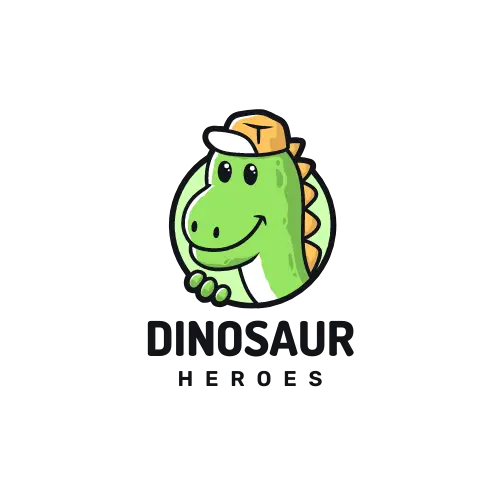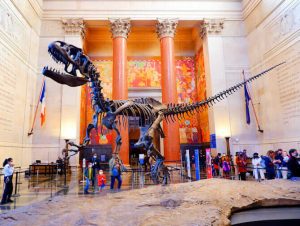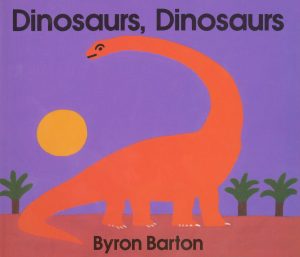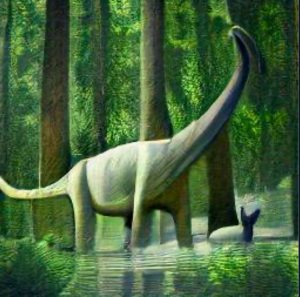Many parents don’t remember the precise point during which their child’s intense interest in dinosaurs develop. Sometimes the interest may be sparked by a special gift from a parent – for instance, a toy dinosaur set after a father’s business trip abroad. More often, parents observe a gradual build up of curiosity over tme.
What age do kids play with dinosaurs?
Kids typically develop an interest in dinosaurs around the ages 2 to six.
Some children play with dinosaur figures, some watch and learn everything they can about dinosaurs, and some play dress up and roar around pretending to be dinosaurs.
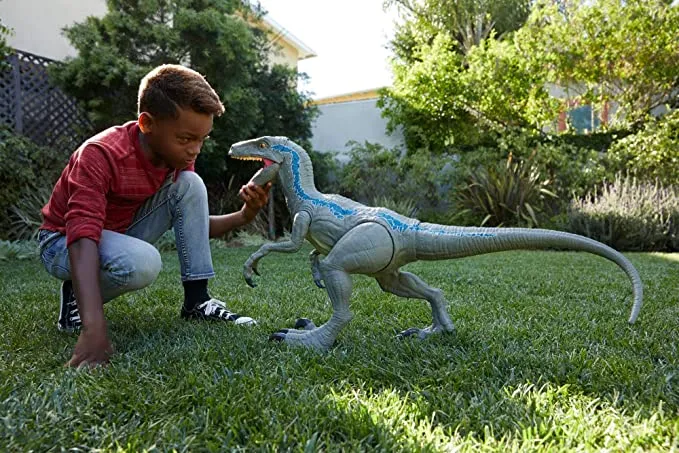
Is my child obsessed with dinosaurs?
Many children have a fascination for dinosaurs but it doesn’t mean your child is necessarily obsessive about them. If your child becomes extremely curious about dinosaurs, spend hours pouring over books and repeat facts even adults don’t know (e.g. the longest dinosaur name is Micropachycephalosaurus” – quite a mouthful for a 4 year old!) or want everything in their life (bedroom, clothing, toys etc) in a dinosaur theme, you likely have a dinosaur-obsessed child. Scientists call obsessions like these “hyper fixation”.
Read on to determine why this isn’t necessarily something to worry about.
Why kids love dinosaurs
There are several psychological explanations for children’s passionate interest in dinosaurs:
- Self discovery through dinosaurs
At around 18 months to 3 years old, children start to find their way around the world and develop a sense of self awareness. Dr. Arthur Lavin, chair of the American Academy of Pediatrics committee on the Psychosocial Aspects of Child and Family Health suggests that this is why they engage in activities like creating a make believe world. It gives them a chance to try out ideas about the world.
Dinosaurs, like unicorns and fairies are perfect fit for imaginary play, precisely because they are not alive today. - Intense interests boosts their confidence
Can you remember parents (or yourself!) boasting about your child’s extensive knowledge of dinosaurs? “I don’t have any idea how she knows all the names those dinosaurs! I can’t hardly remember them myself!”
For some children, this is their first taste of mastery. When they seem to know more than their adults and receive praise at home regularly on the topic, it boosts their confidence and they become increasingly engaged in it. - Dinosaurs are huge
Dinosaurs are commonly thought to be these giant larger than life creatures, even though it is a misconception that all dinosaurs are large! That doesn’t stop children from idolizing a 30 feet tall creature that can roam the earth and terrorize every other living creatures.
It is a wonderful fantasy for young children who often feel small and insignificant in the world.
What do you call someone with a keen interest in dinosaurs? DINOPHILE
Macmillan Dictionary

When will my child grow out of it?
Most children lose interests in dinosaurs and many other types of popular childhood obsessions like unicorns and train around ages 5 or 6. A select few however will carry this interest well into adulthood, some might even become palaeontologists themselves!
Is it healthy?
It is absolutely normal for preschool children to become obsessed with a particular topic, such as trains, dolls or dinosaurs. In fact, a third of children develops these kind of intense interest. Unless the obsession is somehow harmful, or accompanied by other symptoms, parents shouldn’t be concerned.
How can I encourage this interest in my child?
The American Academy of Pediatrics recommends that adults should encourage, and even participate in children’s imaginative play. If you have a child who loves dinosaurs, embrace the interest. Take your child to a museum to see a dinosaur skeleton, read dinosaur books or organise a dinosaur themed birthday party.
Encourage mastery
Exploring a topic extensively and becoming good at it is beneficial because that is how we form our careers as adults. Therefore, listen and engage with your child even if it feels like they are reciting the same fact for the hundredth time.
Create other learning opportunities
You can use your child’s natural interest in dinosaurs as a base to create a new range of learning opportunities and experiences.
Build their problems solving skills
A study by the University of Indiana and the University of Wisconsin found that dinosaur obsessed children night be smarter! Of course, there are several theories to this. Essentially, children develops stronger perseverance, improved concentration and enhanced problem solving skills when they become engaged in a certain topic.
